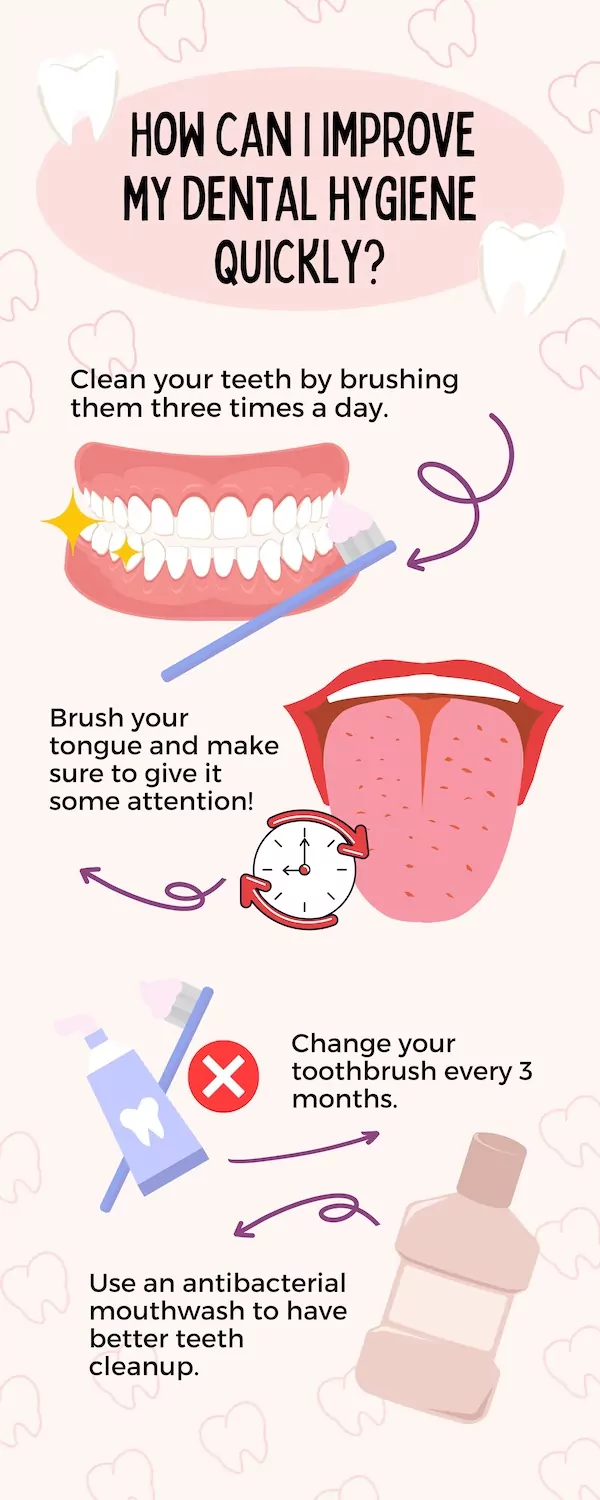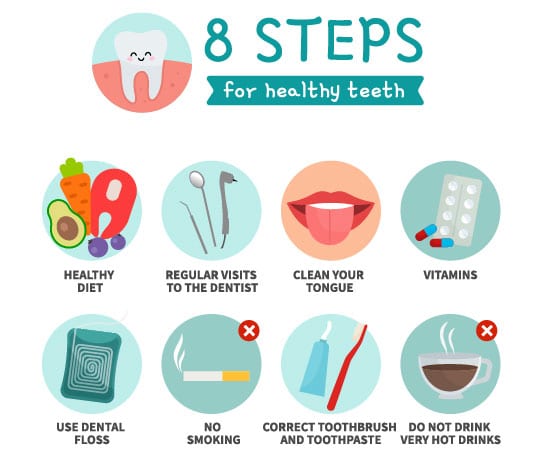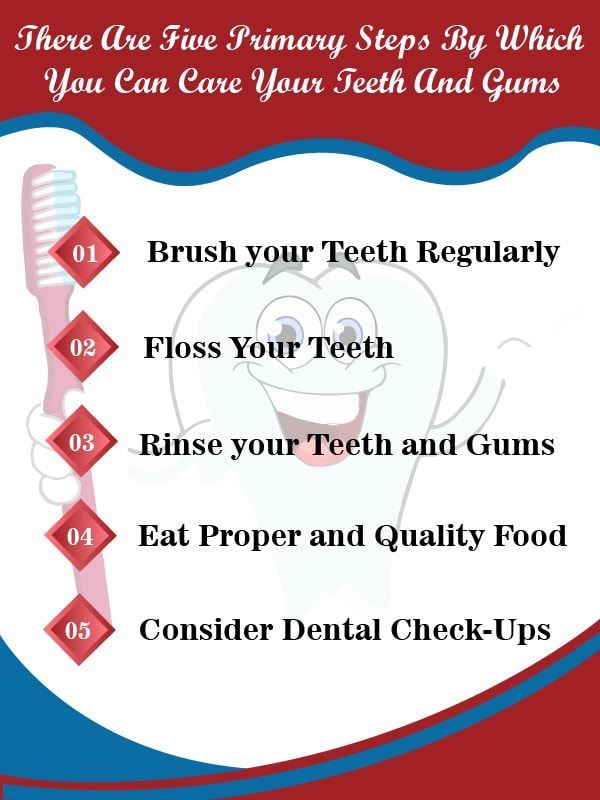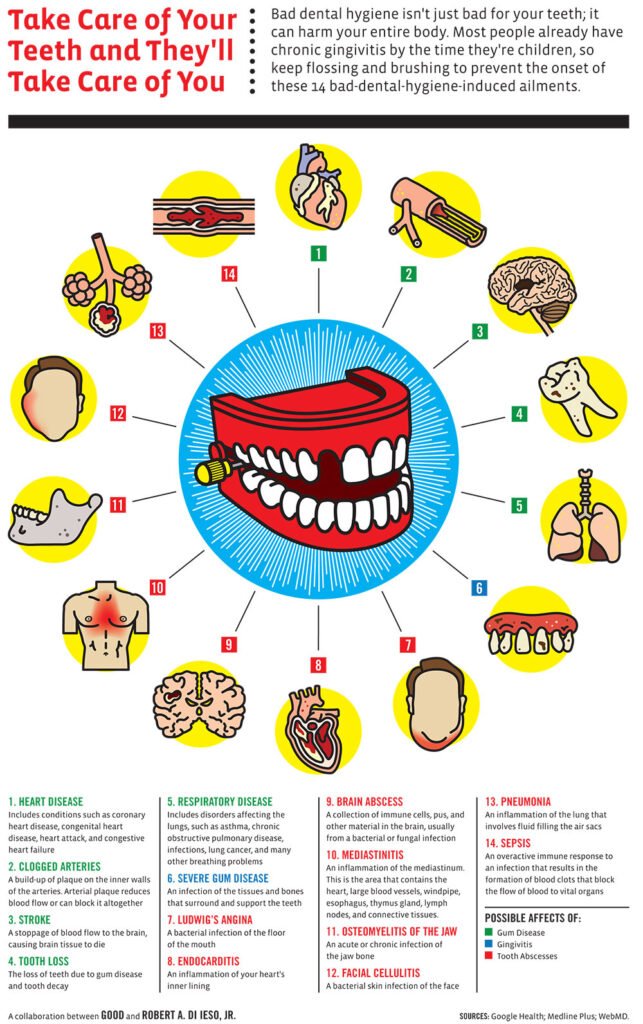Are you looking for ways to take better care of your teeth? Well, you’ve come to the right place! We all know that maintaining good oral hygiene is important, but sometimes we need a little reminder or some new tips to help us stay on track. In this article, we’ll discuss 10 ways you can take care of your teeth and keep your smile looking bright and healthy.
One of the first and most important things you can do to take care of your teeth is to brush them regularly. Brushing twice a day, using a soft-bristled toothbrush and fluoride toothpaste, can help remove plaque and prevent cavities. But brushing alone is not enough – you also need to floss daily. Flossing helps remove plaque and food particles from between your teeth and along the gumline, where your toothbrush can’t reach. In addition to brushing and flossing, it’s important to visit your dentist regularly for check-ups and professional cleanings. Your dentist will be able to detect any potential issues early on and provide the necessary treatment to prevent further damage. This is just a sneak peek of what you’ll learn in this article, so keep reading to discover more ways to take care of your teeth! Taking care of your teeth is crucial for maintaining good oral health. By implementing a consistent oral hygiene routine and adopting healthy habits, you can prevent dental issues and achieve a healthy smile. In this article, you will learn 10 effective ways to take care of your teeth and maintain optimal oral health.

Brushing your teeth
Choosing the right toothbrush
To start your oral care routine, it is essential to choose the right toothbrush. Look for a toothbrush with soft bristles that can effectively clean your teeth without causing irritation or damage to your gums. Additionally, consider selecting a toothbrush with a small head that can easily access hard-to-reach areas in your mouth.
Using the correct brushing technique
Once you have chosen the right toothbrush, it is important to learn the correct brushing technique. Hold your toothbrush at a 45-degree angle to your gums and brush in gentle, circular motions. Remember to brush all surfaces of your teeth, including the front, back, and chewing surfaces. Be sure to brush your tongue as well, as it harbors bacteria that can contribute to bad breath.
Brushing for at least two minutes
Many people underestimate the importance of brushing for an adequate amount of time. It is recommended to brush your teeth for at least two minutes twice a day. Use a timer or play a song to ensure that you are brushing for the appropriate duration. By brushing for the recommended time, you can effectively remove plaque and bacteria from your teeth and gums.
Flossing your teeth
Using the right type of floss
In addition to brushing, flossing plays a crucial role in maintaining good oral hygiene. Choose the right type of floss for your needs, such as waxed or unwaxed floss, flavored or unflavored floss, or floss picks. Experiment with different options to find what works best for you, as consistency is key when it comes to flossing.
Proper flossing technique
To floss your teeth effectively, start by taking a generous amount of floss (around 18 inches) and wrap it around your middle fingers. Hold the floss tightly between your thumbs and index fingers and gently glide it between your teeth using a sawing motion. Curve the floss around each tooth and slide it up and down to remove plaque and debris from the sides.
Flossing daily
Make it a habit to floss your teeth at least once a day. Flossing helps remove plaque and food particles from areas that your toothbrush cannot reach. By flossing daily, you can prevent gum disease, cavities, and bad breath.
Using mouthwash
Choosing a suitable mouthwash
Mouthwash is an excellent addition to your oral care routine as it helps kill germs and freshen your breath. When choosing a mouthwash, opt for one that is alcohol-free to avoid drying out your mouth. Look for mouthwashes that contain fluoride, as this can help prevent tooth decay.
Using mouthwash after brushing
After brushing your teeth, rinse your mouth with mouthwash for about 30 seconds. Swish the mouthwash around your mouth, focusing on all areas. This will help kill any remaining bacteria and give you a fresh sensation.
Following the instructions on the bottle
It is important to follow the instructions on the mouthwash bottle. Some mouthwashes recommend rinsing with water before using the mouthwash, while others suggest not eating or drinking for a certain period after use. Reading and following the instructions will ensure you get the most benefit from using mouthwash.
Eating a balanced diet
Limiting sugary and acidic foods
Your diet plays a significant role in your oral health. Limiting your intake of sugary and acidic foods can help prevent tooth decay and enamel erosion. Sugary foods, such as candies, sodas, and pastries, promote the growth of bacteria that produce acids harmful to your teeth. Acidic foods, like citrus fruits and carbonated drinks, can erode your tooth enamel over time.
Including fruits and vegetables in your diet
On the other hand, including plenty of fruits and vegetables in your diet can promote good oral health. Fruits and vegetables are rich in vitamins and minerals that strengthen your teeth and gums, and their fibrous texture can help clean your teeth as you chew.
Drinking plenty of water
Staying hydrated by drinking plenty of water is not only important for your overall health but also for your oral health. Water helps rinse away food particles and bacteria, neutralizes acids in your mouth, and stimulates saliva production, which is essential for maintaining a healthy mouth.

Avoiding tobacco products
The harmful effects of smoking on oral health
Smoking and using other tobacco products can have severe consequences on your oral health. It can cause tooth discoloration, bad breath, gum disease, oral cancer, and delayed healing after dental procedures. Additionally, smoking reduces blood flow to the gums, making it harder for them to fight off infections and heal properly.
Quitting smoking for better oral hygiene
If you are a smoker, quitting smoking is one of the best things you can do for your oral and overall health. Seek professional help and support to quit smoking, as it can be a challenging addiction to overcome. By quitting smoking, you will significantly reduce your risk of developing various dental issues and improve your oral hygiene.
Avoiding other tobacco products
In addition to smoking, it is important to avoid using other tobacco products, such as chewing tobacco and snuff. These products also pose significant risks to your oral health and can lead to various dental problems.
Limiting alcohol consumption
Understanding the impact of alcohol on oral health
While moderate alcohol consumption may not have severe effects on your oral health, excessive and frequent alcohol consumption can lead to various oral health issues. Alcohol can dry out your mouth, reducing saliva production and increasing the risk of tooth decay, gum disease, and bad breath. Additionally, alcohol abuse can contribute to oral cancer.
Drinking in moderation
If you choose to drink alcohol, do so in moderation. Stick to the recommended guidelines, which suggest limiting alcohol intake to one drink per day for women and two drinks per day for men. Avoid excessive and binge drinking, as it can have detrimental effects not only on your oral health but also on your overall well-being.
Alternatives to alcoholic beverages
Consider opting for alternatives to alcoholic beverages for the benefit of your oral health. You can choose non-alcoholic versions of your favorite drinks or explore a wide range of mocktails and non-alcoholic cocktails that are both refreshing and alcohol-free.

Protecting your teeth
Wearing a mouthguard during sports activities
If you participate in contact sports or any physical activities that pose a risk of dental injuries, wearing a mouthguard is essential. A mouthguard acts as a cushion, protecting your teeth and jaws from impact, reducing the risk of tooth fractures, jaw fractures, and soft tissue injuries.
Using a nightguard to prevent teeth grinding
Teeth grinding, also known as bruxism, can cause significant damage to your teeth and jaw joints. If you grind your teeth while sleeping, consider using a nightguard. A nightguard is a custom-fitted appliance that prevents your teeth from making direct contact, protecting them from wear and tear.
Avoiding using your teeth as tools
Many people have a tendency to use their teeth as tools, such as to open bottles, tear packages, or bite nails. This can lead to tooth fractures, chips, and other dental injuries. Instead, use appropriate tools and avoid putting unnecessary stress on your teeth.
Regular dental check-ups
Scheduling biannual dental visits
Regular dental check-ups are crucial for maintaining good oral health. It is recommended to visit your dentist at least twice a year for routine examinations and cleanings. These visits allow your dentist to detect any dental issues early on and provide timely treatment.
Importance of professional teeth cleaning
During your dental visits, your dentist or dental hygienist will perform professional teeth cleaning, also known as dental prophylaxis. Professional teeth cleaning removes tartar buildup, which cannot be eliminated with regular brushing and flossing. It helps prevent gum disease, tooth decay, and other oral health problems.
Identifying potential dental issues
Regular dental check-ups allow your dentist to identify potential dental issues such as cavities, gum disease, oral cancer, and misaligned teeth. Early detection leads to early intervention, which can prevent further damage and potentially save your teeth.

Dealing with dental emergencies
Knowing what qualifies as a dental emergency
It is important to know what constitutes a dental emergency to take appropriate actions promptly. Common dental emergencies include severe toothache, facial swelling, knocked-out tooth, broken tooth, and jaw fractures. If you experience any of these symptoms, it is crucial to seek immediate dental care.
Immediate actions to take during emergencies
In dental emergencies, taking immediate actions can make a significant difference in saving your tooth or alleviating pain. Rinse your mouth with warm saltwater to reduce bacteria and provide temporary relief. If a tooth is knocked out, handle it by the crown, rinse it gently, and try to place it back into the socket. If you cannot reinsert the tooth, place it in milk or a tooth preservation product and seek emergency dental care.
Contacting an emergency dentist
If you experience a dental emergency, contact an emergency dentist for prompt care. It is important to have the contact information of an emergency dentist readily available to ensure quick access during emergencies.
Teaching good oral hygiene to children
Introducing brushing and flossing at an early age
Instilling good oral hygiene habits in children from an early age sets the foundation for a lifetime of healthy teeth and gums. Introduce brushing as soon as the first tooth appears, using a small, soft-bristled toothbrush and a smear of fluoride toothpaste. As more teeth erupt, encourage flossing using child-friendly flossing products.
Making oral care fun and engaging
To make oral care enjoyable for children, make brushing and flossing a fun and engaging activity. Play their favorite songs or use toothbrushes with their favorite characters. Use age-appropriate educational resources, such as books and videos, to teach them about the importance of oral hygiene.
Monitoring brushing habits of children
Even when children start brushing their teeth independently, it is important to monitor their brushing habits. Ensure they are using the correct brushing technique, brushing for the recommended duration, and not skipping any areas. Offer guidance and assistance as needed to promote optimal oral care.

Considering orthodontic treatment
Understanding the benefits of orthodontic treatment
Orthodontic treatment, such as braces or clear aligners, can not only improve the appearance of your smile but also correct various dental issues. Straightening misaligned teeth can enhance your oral health by reducing the risk of tooth decay, gum disease, and jaw problems. Additionally, orthodontic treatment can improve your bite, making it easier to chew and speak.
Consulting an orthodontist for evaluation
If you have concerns about the alignment or positioning of your teeth, schedule a consultation with an orthodontist. The orthodontist will evaluate your teeth and jaw, discuss treatment options, and develop a personalized plan to address your specific needs.
Exploring different types of braces
Advancements in orthodontics have introduced various types of braces, including traditional metal braces, ceramic braces, and clear aligners. Discuss the different options with your orthodontist to find the most suitable treatment for your lifestyle and preferences.
Maintaining overall health
Understanding the connection between oral health and general health
Maintaining good oral health is not only important for your mouth but also for your overall health. Studies have shown that poor oral health is linked to various systemic conditions such as diabetes, heart disease, and respiratory infections. By taking care of your teeth, you are also safeguarding your general health.
Managing chronic conditions that affect oral health
If you have chronic conditions that affect your oral health, such as diabetes or autoimmune disorders, it is important to work closely with your healthcare team to manage them effectively. These conditions can increase your risk of oral health problems, so proper management is crucial.
Maintaining a healthy lifestyle
In addition to practicing good oral hygiene, maintaining a healthy lifestyle is essential for optimal oral health. This includes eating a balanced diet, getting regular exercise, managing stress, and getting enough sleep. A healthy lifestyle contributes to a strong immune system and can improve your overall oral health.
Addressing teeth sensitivity
Identifying the causes of tooth sensitivity
Tooth sensitivity can be a common issue, causing discomfort and pain when consuming hot, cold, or sweet foods and drinks. It is important to identify the underlying causes of tooth sensitivity, which can include tooth decay, gum recession, enamel erosion, or teeth grinding. Consult your dentist to determine the exact cause and appropriate treatment.
Using desensitizing toothpaste and mouthwash
To alleviate tooth sensitivity, consider using desensitizing toothpaste and mouthwash. These products contain ingredients that help block the transmission of pain signals from the tooth surface to the nerves. Regular use can provide relief and reduce sensitivity over time.
Seeking professional advice for severe sensitivity
If tooth sensitivity persists despite using desensitizing products, it is recommended to seek professional advice from your dentist. They can assess your condition more thoroughly, provide specialized treatment options, and address any underlying dental issues that may be causing the sensitivity.
Conclusion
Prioritizing your oral care is essential for maintaining good dental health and achieving a healthy smile. By committing to a consistent oral hygiene routine and adopting healthy habits, you can prevent dental issues and enjoy optimal oral health. Remember to brush and floss daily, use mouthwash, follow a balanced diet, avoid tobacco and excessive alcohol consumption, protect your teeth, schedule regular dental check-ups, and address any dental emergencies promptly. Teaching good oral hygiene to children, considering orthodontic treatment if necessary, and maintaining overall health also contribute to a healthy smile. By implementing these 10 ways to take care of your teeth, you can enjoy a lifetime of healthy teeth and gums.
